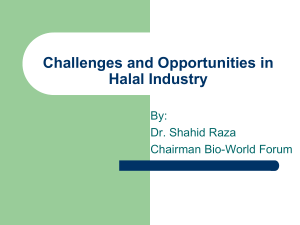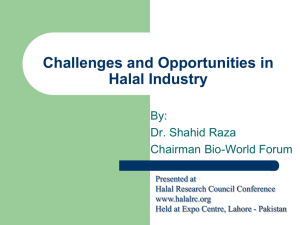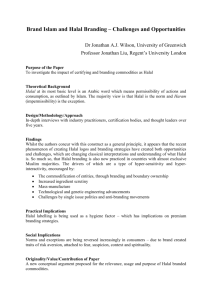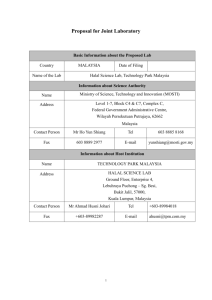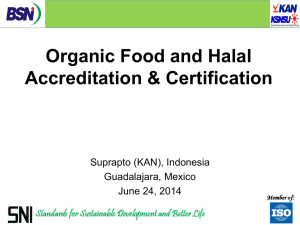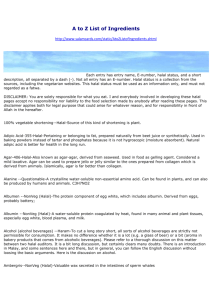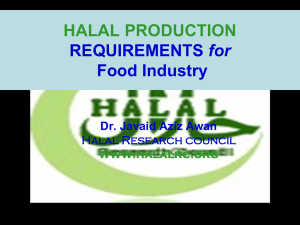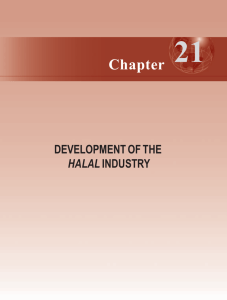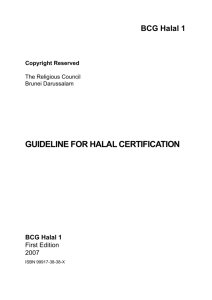What is Consumer Awareness - LAF 2113 : Law and Society
advertisement
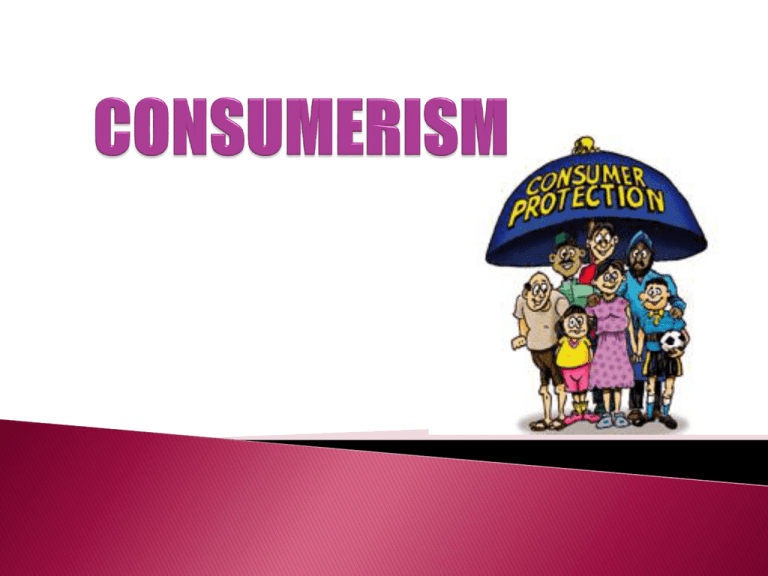
• • (a) (b) Consumer is one who buys goods or services and deserves Section 3 (1) of CPA 1999 states “Consumer” means a person who Acquires or users goods or services of a kind ordinarily acquired for personal, domestic or household purpose, use or consumption and Does not acquire or use the goods or services, or hold himself out as acquiring or using the goods or services, primarily for certain purpose. Consumerism is a social movement whose aim is to protect or cares the buyers of goods and services against fraudulent dealings or inferior services, defective, sub standard product, unfair pricing, misleading advertisement, not labeled or mislabeling of product and so on. It is a part of human right. Consumerism begins as a protest against sub standard goods and fraudulent business practices. In more recent time, the scope of consumerism expanding from the issues of daily living. The things every consumer should know! Consumers should know their basic statutory rights for shopping - in other words the rights you have by law which a shop can't change. Under the Consumer Protection Act 1999, your rights granted cannot be taken away from you notwithstanding conditions in any agreement that you have signed. rights to all the products and services of daily basic needs including food, clothing, health, education and house. right to obtain accurate and precise facts about the product and service that you want to consume. right to claim for damages from unfair practices from the supplier or manufacturer. freedom in buying or assuring that the product or service you need is obtained through the right channels, based on the right price. rights when buying services -you've powerful protection from the Supply of Goods and Services Act 1982. rights when buying goods-The legal protection you have here is from the Sale of Goods Act 1979. Consumer movement got a boost with the establishment of the National Advisory Council for the consumer protection in 1973,and more so with the formation of the Domestic Trade and Consume Affairs Ministry. That is Consumer Protection Advisory Council in each states. Government Non-Government The Ministry of Domestic Trade and Consumer Affair The Ministry of Energy, Water, Communication and Multimedia. The Ministry of Agriculture The Ministry of Housing and Local Government. The Ministry of Health. Federation of Malaysian Consumer Association (FOMCA) Consumer Association of Penang (CAP) Education and Research Association for Consumer (ERA) The understanding by an individual of their rights as a consumer concerning available products & services being marketed and sold . The concept involves 4 categories including safety , choice , information & and the right to be heard. key role in customer decision making. customers are informed and protected Benefits Individual - enhance critical thinking - improve life skills - increase self-confidence Society - promoting customer satisfaction - increasing economic stability - creating realistic customer expectations There are several different types of consumer awareness. Media awareness involves a customer's knowledge of the advertising surrounding a given product or company. Cost awareness involves comparing the prices of a similar product among different competitors. The Muslim population is about 1.6 billion and spread across the world. Halal products and services are also gaining increasing acceptability among Muslims and non-Muslims The global market value for trade in halal products is estimated at US$2.1 trillion annually. This market has created interest among food producing countries both Muslim and non-Muslim. • Halal (lawful) is a term designating any object or an action which is permissible to use or engage in, according to Islamic law. The term is used to designate food seen as permissible according to Islamic law. • Halal products include : - Food - Non-food products; including pharmaceuticals, health products, medical devices, cosmetics, toiletries etc. Pork (2:173) Blood (2:173) Animals slaughtered in the name of anyone but Allah. All that has been dedicated or offered in sacrifice to an idolatrous altar or saint or a person considered to be "divine“ (2:173) (5:3) Carrion (carcasses of dead animals) (2:173) An animal that has been strangled, beaten (to death), killed by a fall, gored (to death), savaged by a beast of prey (except by a human) (5:3) Food over which Allah's name is not pronounced (or at least not in a name other than Allah) (6:121) Alcohol and other intoxicants (5:90) Manufacturers are also cashing in on the concept that virtually all goods and products can be certified halal, including cosmetics, pharmaceuticals, clothing, toiletries etc. Halal cosmetics - including lipstick, deodorant and alcoholfree perfume - can contain animal ingredients but they must be prepared according to Islamic codes on slaughter and preparation. Halal pharmaceuticals - ensuring that the products are produced in accordance with Syariah requirements gaining common acceptance by all the Islamic mazhabs and the ease of applicability for all producers of pharmaceuticals worldwide. For the consumer, the benefits of halal certification is to know whether a product is halal according to Islam means he or she does not have to bother checking all the ingredients. The consumer can purchase the product with the assurance it does not contain anything that is haram or doubtful. This includes the standard of halal slaughter, halal food, halal cosmetics and halal usable goods. Halal certification authorities : Halal Food Council International (HFCI) - International halal certifier operating in USA. HFCI got recognition from JAKIM (Malaysia), MUIS (Singapore), and MUI (Indonesia)and strictly follow the guideline of halal as set by Malaysia, Singapore and Indonesia. This guideline appears in the Codex Alimentarius (1997) that has been approved by all Muslim countries in the world. IFANCA, North America Shandong, Islamic Association, China Instituto Halal, Spain National Independent Halal Trust (NIHT), South Africa Kenya Bureau of Halal Certification (KBHC), Kenya Commission de Surveillance du Halal de la Réunion, France All Ceylon Jamiyyathul Ulama (ACJU) Halal Certification Authority, Sri Lanka Department of Islamic Development Malaysia (JAKIM), Malaysia TERMS AND CONDITIONS : The Islamic organization must be a recognized and registered body in the country of origin The organization must operate in the legal office premise or mosque and not in the personal residence. The organization shall have in its membership, members with syariah expertise The organization shall engage technical expertise /food scientist. The organization agrees to comply with Halal certification requirements or other requirements recommended or approved by JAKIM. The organization agrees to allow officers from JAKIM to carry out an audit on its organization and halal procedures and system from time to time
